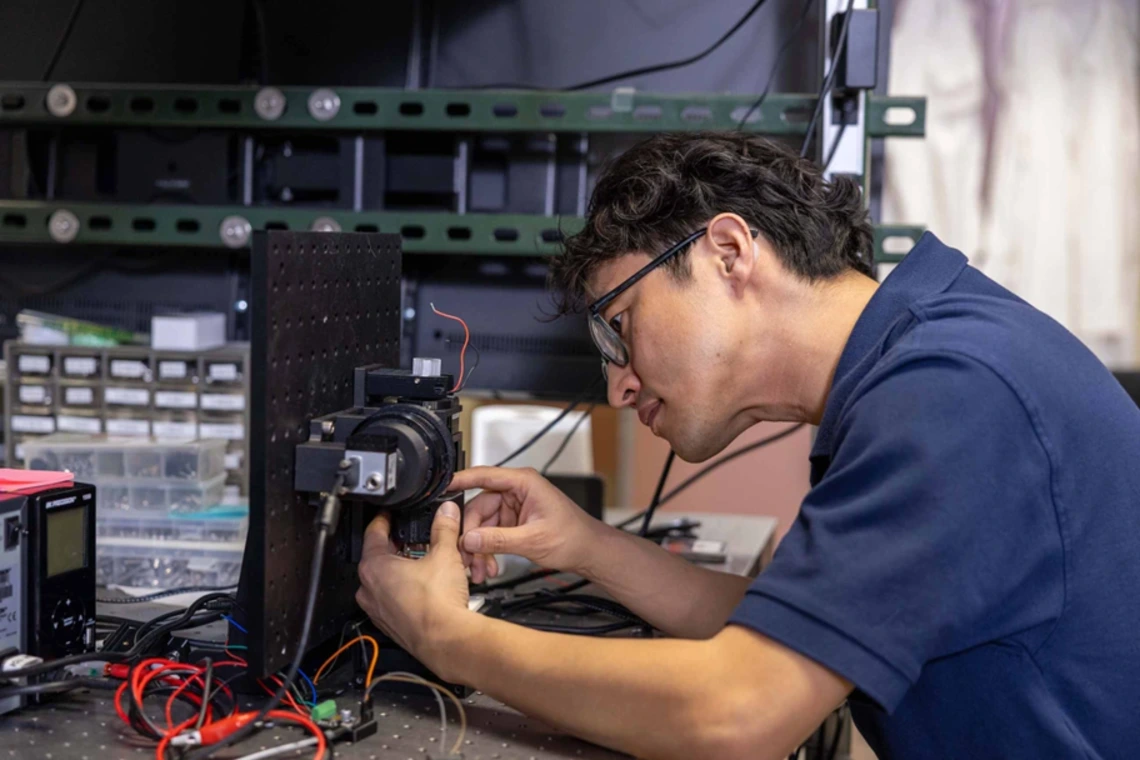Kang earns $2.4M grant to develop biomarker instrument for cancer patients

Dongkyun Kang, PhD, is creating a confocal microscope that might be able to help doctors diagnosis chemotherapy-induced peripheral neuropathy earlier. Photo by Joshua Elz, University of Arizona Cancer Center.
The National Cancer Institute awarded BME associate professor Dongkyun Kang a $2.4M grant to develop a noninvasive, confocal microscope for cancer patients. The medical device will be used to examine nerve endings of cancer patients with chemotherapy-induced peripheral neuropathy (CIPN) a side effect of chemotherapy that can cause numbness, weakness and severe pain in the hands and feet.
“CIPN symptoms can cause high levels of discomfort and present multiple challenges in the daily lives of cancer patients,” said Kang, who is also an associate professor of Optical Sciences and at the BIO5 Institute. “Using this approach, we may be able to identify CIPN earlier to stop symptoms from progressing and possibly prevent the condition altogether. This grant will also support a clinical study to evaluate the new microscope in patients with cancer who are undergoing chemotherapy.”
Patients with CIPN are known to have a reduced number of Meissner corpuscles, which are nerve endings responsible for transmitting the sensations of light touch and low vibration. Kang hopes to use confocal microscopy images to find and count Meissner corpuscles, eventually leading to a potential imaging biomarker.
“The work Dr. Kang has been doing exemplifies the Cancer Center’s approach to precision prevention and therapy,” said Dan Theodorescu, MD, PhD, the Nancy C. and Craig M. Berge endowed chair for the director of the Cancer Center. “I’m excited to see how his study evolves, especially given its potential for global impact.”
